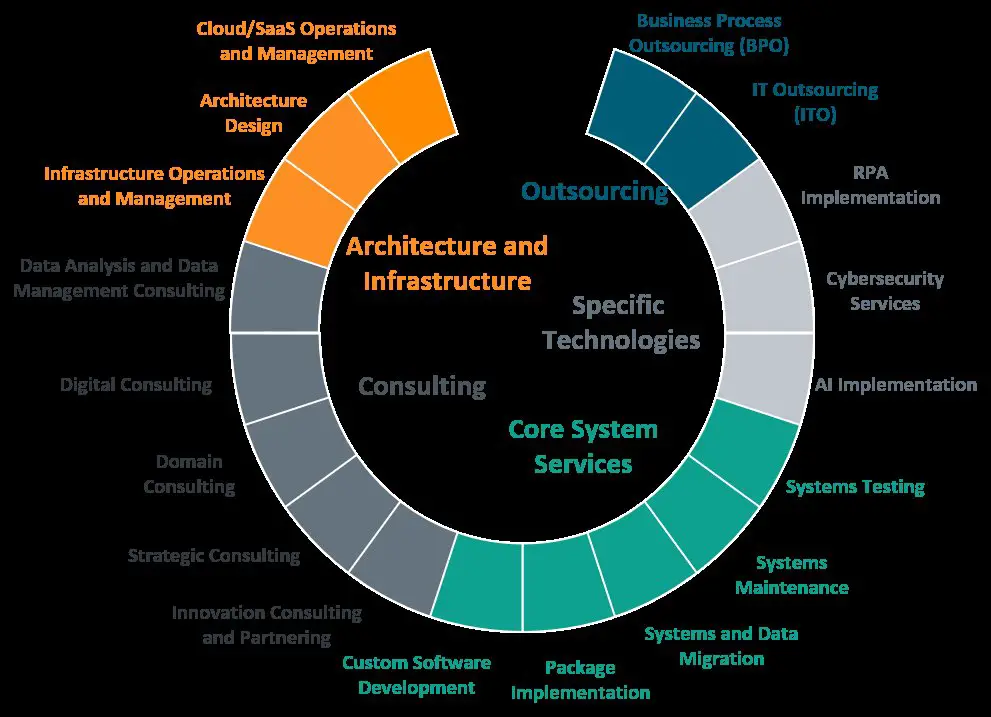Looking to understand what retail banking is and the services it offers? Look no further! Retail banking refers to the services provided by banks to individual customers, rather than businesses or corporations. It encompasses various services such as savings and checking accounts, personal loans, mortgages, credit cards, and more. These services are designed to meet the financial needs of everyday individuals, helping them manage their money, make transactions, and achieve their financial goals. Now, let’s delve deeper into the world of retail banking and explore the wide range of services it offers.
What is Retail Banking and Its Services
Retail banking is a type of banking that focuses on providing financial services to individuals, small businesses, and families. It involves a range of everyday banking activities, such as deposits, loans, mortgages, and credit cards, tailored to meet the needs of individual customers. Retail banks are an essential part of the financial industry and play a crucial role in the economy by facilitating personal and small-scale business transactions.
Understanding Retail Banking
Retail banking, also known as consumer banking or personal banking, aims to offer a wide array of financial services to individual customers. Unlike commercial or investment banking, which primarily deals with corporate clients and financial markets, retail banking focuses on serving the general public.
One of the key features of retail banking is its customer-centric approach. Retail banks strive to establish long-term relationships with their customers by providing personalized services and addressing their specific financial needs. By offering convenient banking solutions, retail banks aim to make financial services accessible to a broad range of individuals.
Types of Retail Banking Services
Retail banking encompasses various services that cater to the diverse financial needs of individuals. Let’s explore some of the most common services provided by retail banks:
1. Basic Banking Services
Basic banking services form the foundation of retail banking. These services include:
- Opening and managing savings accounts
- Issuing debit and credit cards
- Providing checkbooks
- Facilitating cash withdrawals and deposits
- Offering online and mobile banking services
2. Retail Loans
Retail banks offer a range of loan products to meet the borrowing requirements of individuals, including:
- Mortgages: Retail banks provide home loans to help individuals purchase properties.
- Personal Loans: These loans can be used for various purposes, such as funding education, home renovations, or covering unexpected expenses.
- Auto Loans: Retail banks offer financing options for purchasing new or used vehicles.
- Student Loans: Banks provide financial assistance to students pursuing higher education.
- Credit Cards: Retail banks issue credit cards that allow customers to make purchases on credit and pay back in installments.
3. Investment Services
Retail banks also offer investment services to help customers grow their wealth. These services include:
- Retirement Planning: Banks provide retirement savings accounts, such as Individual Retirement Accounts (IRAs) and 401(k) plans.
- Stocks and Bonds: Some retail banks offer brokerage services, allowing customers to invest in stocks, mutual funds, and bonds.
- Asset Management: Banks offer professional advice and portfolio management services to assist customers in maximizing their investment returns.
4. Insurance Products
Retail banks often collaborate with insurance companies to provide insurance products, including:
- Life Insurance: Banks offer life insurance policies that provide financial protection to beneficiaries in the event of the policyholder’s death.
- Homeowner’s Insurance: Banks may recommend and facilitate homeowner’s insurance plans to protect individuals’ properties against potential damages.
- Vehicle Insurance: Retail banks may offer auto insurance policies to protect vehicles against accidents and damages.
5. Wealth Management
Many retail banks have specialized divisions catering to high-net-worth individuals. Wealth management services include:
- Private Banking: Banks provide personalized financial services, including investment management and estate planning, to affluent clients.
- Trust Services: Retail banks may offer trust services to help clients manage assets and ensure their proper distribution to beneficiaries.
- Financial Advisory: Banks provide expert advice on investments, tax planning, and overall financial strategies.
Benefits of Retail Banking Services
Retail banking services offer numerous advantages to individuals and small businesses. Some of the benefits include:
1. Accessibility and Convenience
Retail banks aim to make banking services accessible to a wide range of customers. They have a network of branches, ATMs, and digital platforms, allowing customers to conduct transactions conveniently.
2. Personalized Customer Service
Retail banks focus on building relationships with customers to understand their financial needs better. They offer personalized support and guidance to help customers achieve their financial goals.
3. Diverse Range of Services
Retail banks provide a comprehensive suite of services, including basic banking, loans, investments, and insurance. This enables customers to meet various financial needs under one roof.
4. Competitive Interest Rates
Retail banks often offer competitive interest rates on savings accounts, loans, and credit cards. This allows customers to earn higher returns on their savings and access affordable borrowing options.
5. Secure and Regulated Environment
Retail banks operate within a regulated framework, ensuring the safety of customers’ deposits and transactions. They adhere to strict security protocols to protect customer information and provide a secure banking environment.
In conclusion, retail banking plays a vital role in providing financial services to individuals and small businesses. The range of services offered by retail banks caters to diverse needs, including basic banking, loans, investments, and insurance. Through personalized customer service and a focus on accessibility, retail banks aim to empower individuals to manage their finances effectively. Whether it’s opening a savings account, obtaining a mortgage, or planning for retirement, retail banks are there to assist customers at every stage of their financial journey.
What is Retail Banking?
Frequently Asked Questions
Frequently Asked Questions (FAQs)
What is retail banking?
Retail banking refers to the services provided by a bank to individual customers. It focuses on meeting the financial needs of individuals rather than large corporations or institutions.
What are the common services offered in retail banking?
Retail banking offers a wide range of services, including deposit accounts such as savings and checking accounts, loans for personal needs (such as housing, education, or automobile), credit and debit cards, online banking, mobile banking, and ATM services.
What are the benefits of retail banking?
Retail banking provides several benefits to individual customers. It offers convenience and accessibility through various channels, such as online and mobile banking. It also provides personalized customer service, competitive interest rates, and tailored financial solutions.
How does retail banking differ from commercial banking?
Retail banking focuses on individual customers and their personal financial needs, while commercial banking primarily serves businesses and corporations. Retail banking offers services such as personal loans, credit cards, and mortgages, whereas commercial banking provides services like business loans, treasury management, and corporate finance.
Can I apply for a loan through retail banking?
Yes, retail banking provides various loan options to meet your personal financial requirements. Whether you need a housing loan, education loan, or an automobile loan, retail banks offer flexible borrowing options with competitive interest rates.
What is the role of retail banking in wealth management?
Retail banks often collaborate with their wealth management divisions to provide investment advice, portfolio management, and other wealth management services to their customers. These services help individuals grow their wealth and plan for their financial future.
How can I access retail banking services?
Retail banking services can be accessed through various channels, including physical bank branches, online banking platforms, mobile banking apps, and ATMs. These channels provide convenience and flexibility for managing your finances.
Is retail banking safe and secure?
Yes, retail banking is generally safe and secure. Banks have robust security measures in place to protect their customers’ personal and financial information. They utilize encryption, multi-factor authentication, and other advanced technologies to ensure the security of transactions and account data.
Final Thoughts
Retail banking refers to the services provided by banks to individual customers. These services include basic financial transactions like savings accounts, checking accounts, and personal loans. Additionally, retail banks offer various other services such as credit cards, mortgages, and investment opportunities. Retail banking aims to cater to the everyday needs of consumers, providing them with convenient and accessible financial solutions. By offering a range of services tailored to meet the requirements of individuals, retail banking plays a crucial role in supporting personal financial goals and facilitating economic growth. Understanding what retail banking encompasses and the services it provides is essential for individuals seeking to make informed financial decisions.



